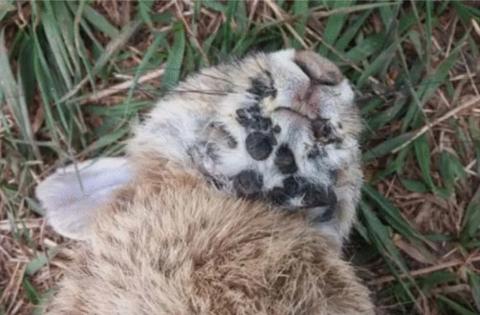Why are Colorado rabbits growing tentacles and horns?
Published in News & Features
DENVER — Rabbits with tentacles in northern Colorado.
There’s not really a better way to sum up recent photos and headlines about cottontail rabbits spotted around Fort Collins with long, dangling growths on their faces.
But as concerning as they appear, the virus that causes the dark, wart-like growths is relatively common and usually not anything to worry about, Colorado Parks and Wildlife officials said Wednesday.
The growths are caused by rabbit or shope papilloma virus, which is spread between cottontail rabbits through direct contact or biting insects like fleas and ticks, CPW spokesperson Kara Van Hoose said.
Shope papilloma virus can’t spread to humans or other pets, though both should still avoid rabbits and other wildlife, Van Hoose said.
State officials have received a handful of reports of the virus since Denver’s 9 News published a photo and story of the odd virus last week, which spread to dozens of other local, national and international news outlets.
The waxy papillomas are mostly made up of keratin and don’t have any negative impact on rabbits unless they interfere with their ability to eat or drink, and most rabbits recover from the virus.
Rabbit papilloma virus can spread to pet rabbits and is more severe in domestic breeds, so pet owners should seek veterinary treatment if their animal gets sick, state officials said.
_____
©2025 MediaNews Group, Inc. Visit at denverpost.com. Distributed by Tribune Content Agency, LLC.







Comments